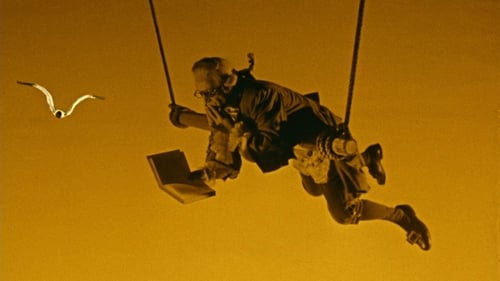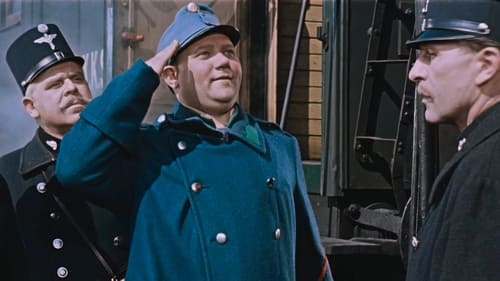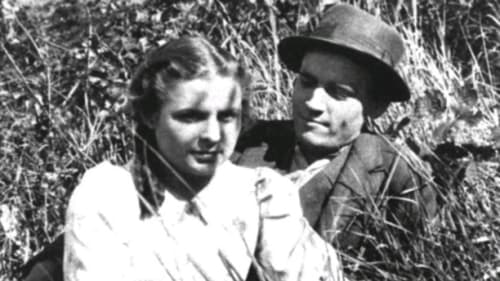
námořník
역사상 가장 황당무계한 허풍선이 남작의 모험 이야기. 허풍선이 남작은 달에 표류된 우주인을 외계인으로 착각하고 그와 함께 신비한 지구 모험을 시작한다. 해마를 타고 터키 제국의 군대를 무찌르고 물고기 뱃속에 갇혔다 빠져 나오는 등 모험의 시대를 배경으로 신화와 전설이 어우러져 종횡무진 활약하는 뮌히하우젠 남작의 이야기가 펼쳐진다. 카렐 제만의 은 40년이 지난 후에도 허풍선이 남작에 관한 여러 영화들 중 가장 좋은 평을 받고 있다. 프랑스의 화가 겸 그래픽 아티스트인 구스타프 도르 (Gustav Dore) 의 영향을 받아 제작된 드로잉과 컷아웃 제작 기법과 어우러진 라이브 액션으로 보여지는 카렐 제만 특유의 신비하고 이국적인 스타일에 빠져든다. 1962 스위스 로카르노 영화제 2위 수상, 1962 모스크바 UNIATEC 국제 협회 기술상 수상.

Telling the prisoners of a death camp. Boxer Tony Majer, who got into a concentration camp for a fight with the Gestapo, remembers the murderous work in quarries, on the cruel torture of the Nazis and prison solidarity that helped him survive.

Czechoslovakian film.

Pepek Vyskoč
A comedy based on the novel of Jaroslav Hašek's The Good Soldier Svejk happens during the World War I. I Dutifully Report: In the introduction to the second part of the film adaptation of Hašek's novel The Good Soldier Švějk presents his main character Josef Švejk. With the distinctive traditional Czech cartoon character of a soldier Svejk, this time you meet on the way to the front and eventually right in the firing line. You can look at his famous train events, and also probably the most famous episode of the novel, Švejk's Budějovice anabasis. Don't miss the scene with the secretly bought cognac, the episode with Svejk as a fake Russian prisoner of war, including the court scene, and the scene in which lieutenant Dub is caught in a brothel. Despite the criticism, Steklý's adaptation is undoubtedly the most famous and memorable at present.

(uncredited)

In late 19th century Czech-speaking Bohemia, oppressed workers at German-owned mines and foundries revolt against their harsh working conditions. Made shortly after World War II as Czechoslovakia was falling to communism, the film resonates in Czech resentment of the German occupation.

One of the few European films of the 30s to criticize the Nazis, even if they couldn't be directly named due to censorship: Gangsters with gray hats stir up trouble in what is obviously the Sudetenland.

Alois

Rudolf Měšťák’s silent film The Prague Executioner, based on the novel of the same name by Josef Svátek, is a historical tale of love, betrayal and revenge. The screening of the restored 35 mm copy, coloured in accordance with the original tinting and toning process, will be accompanied by music from an ensemble headed by musicologist and composer Vlastislav Matoušek.

Factory owner Pardon, meets Olga, daughter of clairvoyant Stefanie Lesczynska at a ball. Their brief acquaintance is interrupted when Olga and her mother have to leave. Fifi Hrazánková has her sights set on the elligible Pardon. Pardon asks his Uncle Cyril Ponděliček if the girl could take over his position at work so that she may be dissuaded of her amorous intentions. Fifi seduces Pondělíček. In the meantime, Pardon meets Olga and Stefanie again by chance and offers them a place to stay at Ponděliček’s while Pondělíček passes himself off as Pardon.

Directed by Carl Lamac.






